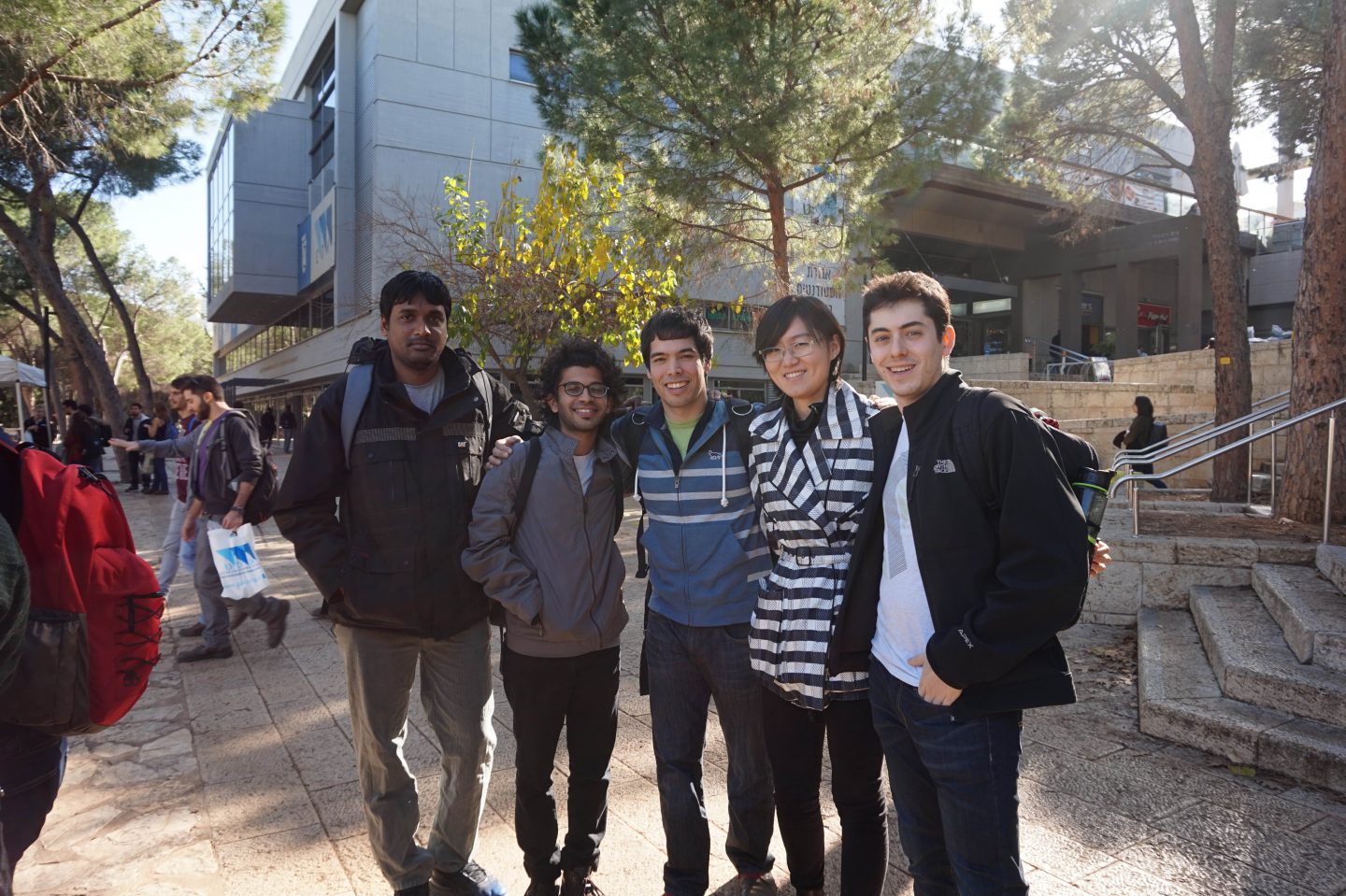Students Travel to Israel for a Different Kind of Boot Camp
Categories

In Israel, every 18 year old goes through boot camp prior to mandatory military service.
Earlier this year, Johnson Cornell Tech MBAs and MS students from the Jacobs Technion-Cornell Institute traveled to Israe l to participate in an untraditional boot camp of their own. They visited cultural sites and various high-tech startups, but they also got their hands dirty. The MBAs had marathon consulting sessions with startup companies they had been working with from afar and the Jacobs students embedded themselves in Technion’s labs over four days spent on the Haifa campus. At the end, all students participated in a hackathon where venture capitalists and CEOs replaced drill sergeants.
The purpose? Finance professor and leader of the “iTrek” MBA course Roni Michaely said that he hoped the 12-day cultural immersion would inspire students to bring some of Israel’s “Startup Nation DNA” back to the United States. Israel has the highest concentration of tech startups outside of Silicon Valley.
For the 42 MBAs the trip to Israel was the culmination of the iTrek course. In November, each of the MBAs partnered with a real Israeli startup and committed to at least 100 hours of consulting work, solving real problems in real time. Once in Israel, they not only met their clients in person for the first time, but also continued with their consulting work, giving numerous presentations to investors and experts over the course of the trip.
The Technion is at the heart of this startup culture. Some 70% of the country’s high-tech founders and managers graduated from the Technion, which, together with Cornell University, is a parent institution to the Jacobs Technion-Cornell Institute at Cornell Tech. Students at the Jacobs Institute receive a degree from both educational giants.
“There’s a lot of value in having a Technion degree,” said Connective Media masters student Muhammad Khadafi. “It is highly respected from a pure tech perspective. It’s deep engineering.”
The Jacobs Institute has been described as a “sandbox for innovation,” so it makes sense that eight students in Connective Media, plus one pursuing the MS in Health Tech and another an MEng in Computer Science, went to the desert to get to know their Technion peers working on cutting-edge robotics and medical devices in their labs.
As a group, the students remarked at how they felt at home. “Technion is quite diverse. You’ll see women in hijabs work alongside men with peyos,” recalled Shawn Bramson (CM, ’16). This was the first of what is to become an annual trip.
At the end of the trip, both groups of students — Johnson Cornell Tech MBAs and Jacobs students — came together in Tel Aviv for a design challenge hackathon with Sears Israel engineers and Shenkar University. By the end of the hackathon, they had presented approximately 30 sessions in 10 days, MBA student Ian Folau recalled in a blog about his experience abroad.
They did what Israeli entrepreneurs do: they delivered presentations to venture capitalists, danced in Tel Aviv clubs, and set aside time to float in the Dead Sea. (And of course, no trip to Israel would be complete without riding camels and spending at least one night in a Bedouin village.) Throughout all of this students got a taste for Israelis’ strong professional drive, focus on education, and cultural mindset, plus a glimpse of how these factors shape their lifestyle and business acumen.
Citing former Israeli president Shimon Peres’ famous quote that “Jews’ greatest contribution to history is dissatisfaction!” Bramson observed that, in Israeli work culture, “They won’t hold back, they will jump directly into the issues and are straight to the point.”
Bramson speculated that straightforward talk and the ability to overcome obstacles might partly be a reflection of Israelis’ heritage: “Historically they faced adversity and had to fight for their existence, constantly trying to keep themselves afloat. Perhaps as a result, they do away with the formalities and get to the point.”
Rachel Flynn, who is currently pursuing her MBA, was also impressed by Israelis’ sense of resilience and perseverance. “We showed up a week after there had been a terrorist attack in Tel Aviv,” she said. “I don’t know how a culture bounces back so quickly. These stories are just as meaningful as the tech stories.”
The Cornell Tech students who participated in the trip took home these valuable cultural lessons as well as something more tangible.
“Some companies offered jobs to the students who worked on their business challenges,” said Flynn. “Meeting and consulting for real companies really ties what we do in school to real life.”
Media Highlights
Tech Policy Press
Content Moderation, Encryption, and the LawRELATED STORIES





